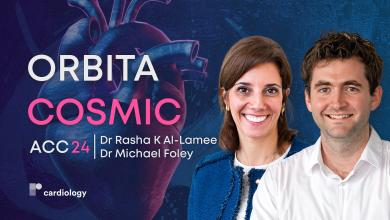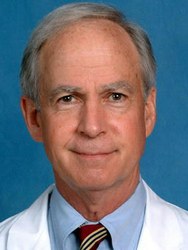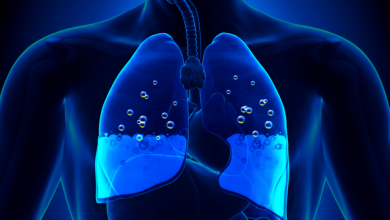Search results
Author(s):
Rami Khayat
,
Andrew Pederzoli
,
William T Abraham
Added:
3 years ago
Heart failure is the only cardiovascular disease with increasing incidence and mortality.1 Approximately five million Americans have heart failure, with an annual incidence of 10 per 1,000 in individuals over 65 years of age, an already rising demographic segment of society. Heart failure is the most frequent Medicare diagnosis, with most of its cost related to hospitalizations.1,2 Identification…
View more
Transvenous Phrenic Nerve Stimulation - A Novel Therapy for Central Sleep Apnea in Heart Failure
Author(s):
Sitaramesh Emani
,
William T Abraham
Added:
3 years ago
Article
Author(s):
Philip Adamson
Added:
3 years ago
A growing appreciation of the prevalence of sleep breathing disorders, especially as comorbidities of disease syndromes such as chronic heart failure, has increased interest in screening, diagnosis, and treatment of obstructive and central sleep apnea. Sleep apnea diagnosis currently requires an overnight polysomnograhic evaluation in which the disease is defined as the number of times per hour…
View more
Author(s):
Rasha Al-Lamee
,
Michael Foley
Added:
1 week ago
ACC.24 — Investigators, Dr Rasha K Al-Lamee and Dr Michael Foley (Imperial College London, UK) joined us to discuss the ORBITA COSMIC trial (NCT04892537).This randomized, double-blinded, placebo-controlled trial investigated the effects of coronary sinus reducer (CSR) as compared to placebo on myocardial perfusion via MRI, exercise duration, and symptoms in patients with refractory angina and…
View more
Varun Sundaram
Author
Sidney C Smith
Job title: Professor of Medicine, UNC-Chapel Hill (1994-present); Chief, Division of Cardiology, UNC-Chapel Hill (1994-2001)
Author
Author(s):
Suketu H Nanavati
,
Robert J Bulgarelli
,
Jose Vazquez-Tanus
,
et al
Added:
3 years ago
Heart rate variability (HRV) is considered to be a means of assessing autonomic function. However, HRV alone provides mixed measures of autonomic function1–11 and, as a result, cannot provide much insight into the autonomic involvement in arrhythmia.1,6,10 When HRV analysis is employed in conjunction with respiratory activity (RA) analysis, it has been shown to independently, simultaneously, and…
View more
Author(s):
Glenn I Fishman
,
Richard I Levin
Added:
3 years ago
Abstract
Recently, we had the opportunity to review the progress that has been made in the field of cardiovascular disease over the past century in The FASEB Journal and, based on those thoughts, in this article we predict what may transpire in this 'century of biology'. Although it is true that 'the best way to predict the future is to invent it', we gaze through the prism of modern…
View more
Author(s):
Henry M Spotnitz
,
T Alexander Quinn
Added:
3 years ago
Surgeons have contributed studies of the pathophysiology and treatment of arrhythmias in experimental animals and patients during thoracotomy. This research has involved epicardial1 and endocardial2 pacemakers and implantable cardioverter–defibrillators (ICDs).3 Surgeons helped to define the mechanisms and ablation methods for supraventricular arrhythmias (including Wolff-Parkinson-White syndrome…
View more
Author(s):
Shamai A Grossman
Added:
3 years ago
Introduction
Congestive heart failure (CHF) is an imbalance in pump function in which the heart fails to maintain the circulation of blood adequately. The most severe manifestation of CHF, pulmonary edema, develops when this imbalance causes an increase in lung fluid secondary to leakage from pulmonary capillaries into the interstitium and alveoli of the lung.
CHF can be categorized as forward…
View more













